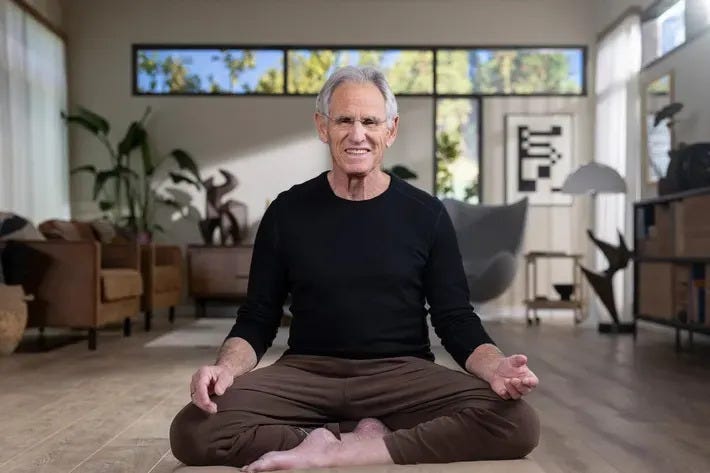Unlocking the Power of Present Moment Awareness through Mindfulness
Written on
Understanding Present Moment Awareness
Many individuals harbor a reluctance towards meditation, often perceiving it as something esoteric or overly spiritual. A friend once remarked, “I don’t meditate; that’s for Buddhists,” which illustrates a prevalent misconception. For numerous people, meditation seems exclusive to monks or ascetics, particularly among those with a more logical or scientific mindset.
Yet, the truth is that anyone can reap the benefits of meditation, regardless of their background. One does not need to be a monk or adhere to any particular faith; simply being human is enough.
Nichiren, a Japanese Buddhist priest from the 13th century, asserted that “all living beings possess the Buddha nature,” which signifies the inherent potential within us to achieve enlightenment. However, ancient wisdom may not resonate with everyone, especially those who lean towards scientific reasoning. This is where figures like Dr. Jon Kabat-Zinn come into play.
Dr. Jon Kabat-Zinn, a professor emeritus of medicine and the founder of the University of Massachusetts Medical School’s “Stress Reduction Clinic” and “Center for Mindfulness in Medicine, Health Care, and Society,” brings a scientific lens to mindfulness practices. He holds a PhD in molecular biology from MIT and has dedicated his career to exploring the intersection of meditation, mindfulness, and health. He is best known for creating the Mindfulness-Based Stress Reduction (MBSR) program, an eight-week course designed to help individuals dealing with stress, anxiety, depression, and chronic pain. His research has shown that mindfulness can aid in treating various conditions, from skin issues to mental health challenges, and can enhance brain and immune system functioning. Despite his deep understanding of Buddhist practices, Dr. Kabat-Zinn does not identify as a Buddhist; instead, he focuses on applying mindfulness through a scientific lens.

In upcoming discussions, I plan to delve deeper into Dr. Kabat-Zinn’s contributions, but for now, let’s explore his interpretation of meditation. He often avoids the term “meditation,” arguing that it carries too much preconceived notion. Instead, he favors the term “mindfulness.” According to Dr. Kabat-Zinn, mindfulness is “awareness that arises through paying attention, on purpose, in the present moment, non-judgmentally... in the service of self-understanding and wisdom.” In simpler terms, he defines it as “present moment awareness.”
This essence of meditation is about being aware of the present. Dr. Kabat-Zinn emphasizes that mindfulness extends far beyond the confines of a meditation session. He explains:
“Mindfulness means moment-to-moment, non-judgmental awareness. It is cultivated by refining our capacity to pay attention, intentionally, in the present moment, and then sustaining that attention over time as best we can. In the process, we become more in touch with our life as it is unfolding.”
The ultimate purpose of meditation, if there is one, is not to isolate ourselves in a monastery, but to nurture an awareness that we can carry into our everyday lives. This presence can enhance our experiences in countless ways. By living mindfully, we can deepen our connections with others, appreciate the beauty around us, and view life’s challenges as temporary hurdles rather than permanent obstacles.
Life’s ups and downs are not everlasting. This realization can be comforting during difficult times, like waiting in a long queue or mourning a loss. Conversely, it can also incite anxiety during joyful moments, such as spending quality time with loved ones or savoring a delicious dessert.
The fleeting nature of life is evident, but what is less obvious is that the present moment is all we truly possess. Our awareness of the present shapes our experiences. The more attuned we are to the present, the more purposefully we can navigate life.
This practical aspect of meditation involves training the mind, much like building a muscle, to cultivate an awareness of the present moment. Whether labeled as meditation, mindfulness, or present moment awareness, what truly matters is the intention behind it. By focusing on the now, we can enrich our lives, free from the burdens of the past or worries about the future.
The present moment is your only certainty. Make it meaningful.
Chapter 2: The Role of Mindfulness in Daily Life
Discover the foundational principles of acceptance and commitment therapy, which emphasize mindfulness as a step toward present moment awareness.
Chapter 3: A Mindful Journey into the Present
Embark on a journey to becoming aware of the present moment through mindfulness practices that enhance your daily experiences.